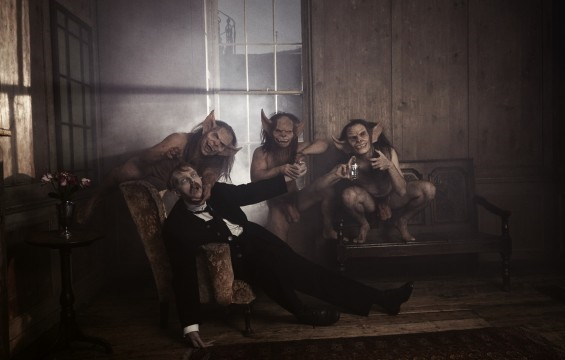

 The SFFaudio Podcast #147 – Pickman’s Model by H.P. Lovecraft, read by Mr Jim Moon. This is a complete and unabridged reading of the short story (21 Minutes) followed by a discussion of it by Jesse, Tamahome, Mr Jim Moon, Wayne June and Mirko Stauch. Here’s the ETEXT.
The SFFaudio Podcast #147 – Pickman’s Model by H.P. Lovecraft, read by Mr Jim Moon. This is a complete and unabridged reading of the short story (21 Minutes) followed by a discussion of it by Jesse, Tamahome, Mr Jim Moon, Wayne June and Mirko Stauch. Here’s the ETEXT.
Talked about on today’s show:
S.t.a.u.c.h., comic book explosion sounds, “thwip”, Pickman’s Model by H.P. Lovecraft, Hypnobobs Podcast, Hypnogoria.com, Jim Moon’s audio essay about ghouls, R. Chetwynd-Hayes, Amicus Press, Beyond The Grave, The Monster Club, The H.P. Podcraft Podcast, The Tomb, The Call Of Cthulhu, The Crawling Chaos, The Music Of Erich Zann, The Festival, nobody wants to talk about art, Neonomicon, Pickman’s Necrotica, Night Of The Living Dead, Richard Burton, the German audio drama adaptation, The Thing On The Doorstep (annotated by S.T. Joshi), I Am Providence: The Life And Times Of H.P. Lovecraft, The Case Of Charles Dexter Ward, Robert E. Howard, Omar Epps, House, M.D., “no nordic man”, The Graveyard Book by Neil Gaiman, lead-lined coffins, a slurry of sauce, “the lesson”, “subway accident”, The Dream Quest Of Unknown Kadath, Bradford Dillman, “for procreational purposes”, The Shadow Over Innsmouth, The Unnameable, Gustav Dore’s illustrations for Edgar Allan Poe’s The Raven, the power of art, Supernatural Horror In Literature, Aristotle’s Poetics, Algernon Blackwood, YogSothoth.com, What The Moon Brings, a ghoulish sense of humor, Robert Bloch, Clark Ashton Smith, eldritchdark.com, Out Of Space And Time, Cotton Mather, spectral evidence, the original waterboarding, The Horror At Red Hook, He, Audio Realms, The Mountains Of Madness, Through The Gates Of The Silver Key, The Statement Of Randolph Carter, two one sided conversations, what would Lovecraft write today?, The Lovecraft Chronicles by Peter Cannon, Lovecraft’s racism, Mr. Nigger Man (Lovecraft’s cat), racist paint colours, WWII, xenophobia, the strange and the stranger, Samuel Loveman, mythologizing the author, Buck Rogers, Doc Savage, Poe himself is the star of The Raven, laughing in horror, the Night Gallery paintings, Hannes Bok, a wolf with a mullet, a modern adaptation, The Rats In The Walls, if a story can be spoiled it’s probably not worth reading (or re-reading), Tam would have dropped his shit, Joanna Russ, Cthulhu 2000, Poe wrote his wife to death, Beyond The Wall Of Sleep, The Crawling Chaos, “psychedelically cosmic”, Jim Moon’s Necronomicon woodcuts, 16th century Pickman,














Posted by Jesse Willis


 Moon-Face
Moon-Face




















